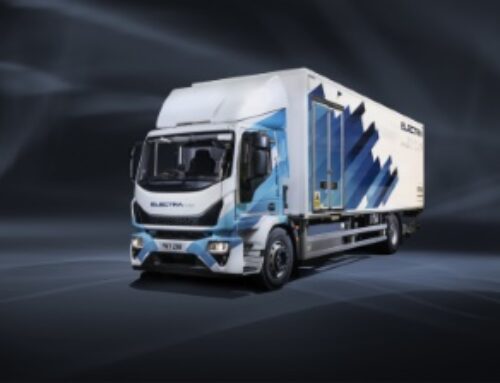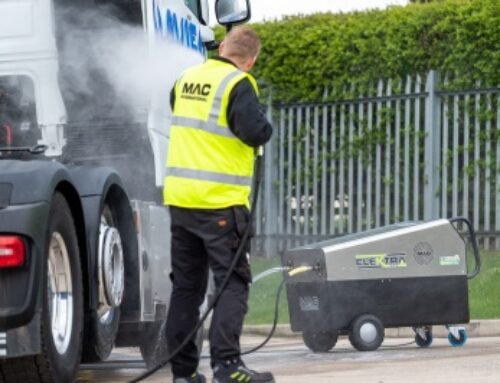Shell: separate fuel efficiency managers ‘on the rise’
 Financial, environmental and operational pressures are paving the way for the emergence of a distinct new role within transport fleets, says Phil Williams, head of Shell Commercial Fleet UK
Financial, environmental and operational pressures are paving the way for the emergence of a distinct new role within transport fleets, says Phil Williams, head of Shell Commercial Fleet UK
For road haulage companies, the world is not what it was. Nowadays, they are facing three new game-changing realities: the introduction of stricter fuel emissions legislation, thinning profit margins and the growing need to prove environmental credentials during customer tenders.
Over the last five years, this shifting landscape has put greater pressure on road haulage managers and started to change the very nature of the role they perform. In particular, it has elevated the importance of fuel management in their day-to-day responsibilities due to its inherent ability to influence all three vital elements.
For many road haulage managers, fuel management is now a significant part of their day. However in some large companies, it has become so significant that their fleet managers are finding it difficult to manage both their fleet and the fuel that powers it effectively.
Due to this, we’re starting to see some large haulage firms splitting the responsibility for fleet and fuel management across two people – one fleet manager and one ‘fuel efficiency manager’.
In doing so, they are able to both free up their fleet managers to do what they do best – manage their fleet – and reap the full spectra of financial savings on offer through managing activities that can influence fuel consumption, such as driving style, fuel, lubricant and tyre selection, route planning, vehicle maintenance, weight management and fraud protection.
The economics of employing a dedicated fuel efficiency manager really need to be calculated on a case-by-case basis. However, for large haulage companies, we often hear that the maths does add up.
Earlier in the year, for example, Shell commissioned a study, titled ‘Fuel Matters 2014’, which investigated the fuel management practices of more than 200 managers of UK-based road haulage operators. It revealed that over half (54 per cent) believe improving their drivers’ fuel efficiency driving skills could single-handedly cut their fuel bills by five per cent or more. Interestingly, more than 1 in 10 (12 per cent) said the financial saving could be greater than 10 per cent.
Improving drivers’ fuel efficiency driving skills is only one component of fuel management. And for a large fleet, with a large fuel bill, saving 10 or even 5 per cent can translate into a lot of money saved.
This finding, however, was not the real shock in our study. That came when we asked road haulage managers why so many weren’t reaping the benefits. The answer wasn’t that they didn’t know that the way their drivers drive can significantly impact fuel consumption or that telematics systems exist to monitor performance and identify opportunities for improvements quickly and easily. Nearly half (46 per cent) simply said they don’t have the resources required to manage fuel properly.
An inspiring example of a company in the UK that has seized the opportunity to reduce overall operating costs by employing someone to work with its drivers to improve their fuel efficiency driving skills is FreshLinc. It employs Andrew Tubb as its driver development manager.
Every day, Andrew monitors driver performance using our telematics system, Shell FuelSave Partner, and then coaches drivers based on the insights delivered through its reports. As a result, the company has seen dramatic operational improvements and the majority of its vehicles now achieve more than 10 mpg.
As testament to the value of Andrew’s work, earlier in the year one of his drivers, Frantisek Bogyi, was crowned as the UK’s national champion at the Shell FuelSave Partner European Driver Competition, an annual contest to find the most fuel efficient fleet driver among Shell FuelSave Partner customers in Europe.
Mr Bogyi was awarded the accolade after being judged to have displayed the best fuel efficiency driving skills in the country during a month long virtual assessment of Shell FuelSave Partner data by Shell Technical experts and DEKRA Academy.
In doing so, he beat over 1,000 other drivers from across the continent to secure a place in the Grand Final in Berlin – quite an achievement, which was helped in no small part by Andrew’s commitment to train his drivers to the highest possible standards.
As we continue to see financial and environmental pressures exerted on road haulage companies, there is no doubt that effective fuel management will continue to play an important part in the day of fleet managers. Many will continue take managing both fleet and fuel management responsibilities in their stride. But for some, the challenge will be untenable due to the size and/or diversity of their fleet.
For this reason, we expect to see the rise of the fuel efficiency manager become more prominent in the years to come. With meaningful money on the table, it’s a calculation we certainly believe most road haulage companies will at least deem worth making.
www.shell.co.uk/fleet-management
CV Show Stand: 3B77










